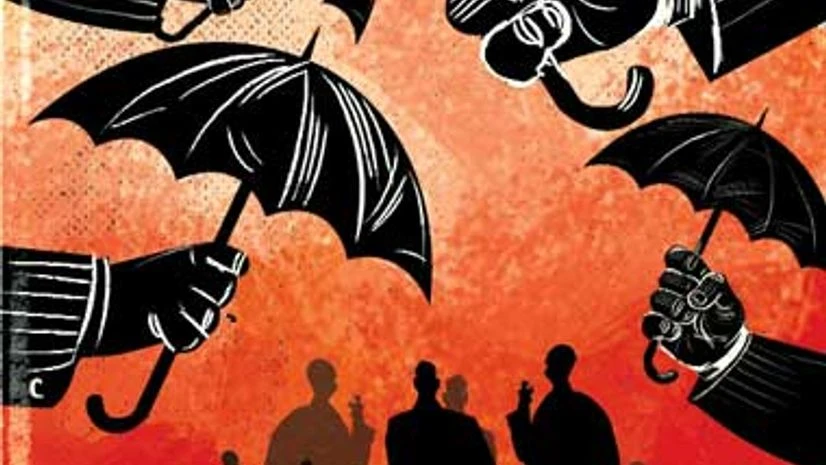Buying an insurance product in the 1990s, and even now in many places, was and is as simple as this: Your friendly neighbourhood agent of Life Insurance Corporation of India (LIC) comes and explains the benefits of buying a particular plan over a cup of tea or coffee, takes the cheque and the policy document is delivered within weeks. And, every year, he comes back to collect the premium cheque, ensuring the policy does not lapse.
Things have changed quite dramatically in the past decade, especially in major cities. Beside the entry of private players, the kind of products and methods of buying have changed. An example: The introduction of unit-linked insurance plans, an investment-cum-insurance plan that is not recommended by most financial planners, means returns on insurance policies are no longer four-six per cent annually but are significantly more when stock markets are rising. And, can be equally risky when the markets are falling, and even wipe out the principal, as high commissions are paid to agents. So, some serious advice is required if you are into such complex products. Also, with the advent of online term plans with high sum assured of Rs 1 crore or more, policyholders can now have one or two big life policies, instead of accumulating many to reach a high sum assured.
Due to these changes, a number of new channels have emerged. Broadly, the various distribution channels can be classified into (a) direct- through the insurance company staff or the company's website, (b) representatives of the insurance company-agents, corporate agents like banks, or independent marketing firms (c) independent players - brokers and online aggregators. What differentiates these?
More From This Section
They might be handy for someone looking for a market-linked product like a unit-linked insurance plan (Ulip). A face-to-face interaction with the agent helps understand returns in different scenarios like a debt-light, equity-heavy option or vice versa. "In the case of long-term life insurance products, customers should spend time with the agent to understand what the policy is going to fulfil, how it is a part of their overall financial planning and the duration for which they need to pay the premia," says Sanjay Tripathy, senior executive vice-president at HDFC Life Insurance.
Bank or corporate agent: Rushabh Gandhi, director, sales and marketing, IndiaFirst Life Insurance, believes the bank manager from the neighbourhood branch is emerging as a preferred choice for many policies. This is because there is a high level of trust with the manager of the branch where you already have put your savings in. The advantage is convenience. Since the buyer already has a relationship with the bank, such as a savings bank account or fixed deposits or loan, it is convenient to buy insurance, too, from the same branch.
But, much like an agent, the manager is also tied to one insurance company. Irdai has permitted banks to offer products of three companies - one life, non-life and health. This should widen the choice for customers. A point to keep in mind: Know the location for policy servicing. That is, whether it is the bank branch or the insurer's office, says Subrat Mohanty, head of marketing, Bajaj Allianz Life Insurance.
Brokers: Their biggest advantage is they offer products of multiple companies since they, by regulation, represent the customer, not the company. So far, retail brokers offer only non-life insurance products like motor, health, fire, etc. "From a customer's point of view, a broker offers maximum benefits. He understands the customer's requirement and reconciles it with what is available in the market. He ensures post-sales record keeping, and so on,'' says Mahavir Chopra, director, health & life insurance, Coverfox Insurance .
Brokers can help in claims settlement as well. Another advantage for customers is that in the case of mis-selling or other grievance, the broker is responsible. Whereas in the case of an agent or a corporate agent, the customer has to deal with the company directly.
Online aggregators: They are independent players who provide a platform to compare products of multiple companies. Customers can use the platform to buy, but cannot get advice on how to choose the best product. Online aggregators work best for simple products like term plans, where the features are same and they select a product based on price and brand. However, there will be an offline intervention like a medical check and others if the sum assured is very high, points out Chopra.
Comparison of prices is easier online, while going through a broker means paying a fee for it. In the case of online products, customers have to sign a document that they have agreed to the terms and conditions. So, a buyer who has done the due-diligence and has knowledge can buy online, says Saroj Satapathy, chief executive officer, Ideal Insurance Brokers. In the case of health insurance, customers might need help with choosing a right product based on the various sub-limits in the policy and numerous riders. So, a broker could be a good option. But, in the case of motor insurance, where product features are largely the same, one can save cost by buying from an online aggregator.
Common service centres: Customers living in rural/semi-rural locations can buy exclusive products filed by insurance companies from common service centres. These, are required to be simple to understand and have a sum insured of less than Rs 2 lakh (except for car insurance).
Independent marketing firms: These are similar to corporate agents. They can offer products of two life, two general and two health insurance companies. They can offer only retail insurance products.
While choosing an intermediary, the track record is important. "Once you sign up with an intermediary it is not easy to change. So, one has to be extremely careful in choosing. Especially in the case of long-term products like life or health plans,'' says Chopra.
SEEK THE RIGHT OPTION:
INSURANCE AGENT
BANK AND CORPORATE AGENT
INSURANCE BROKER
ONLINE AGGREGATOR

)
